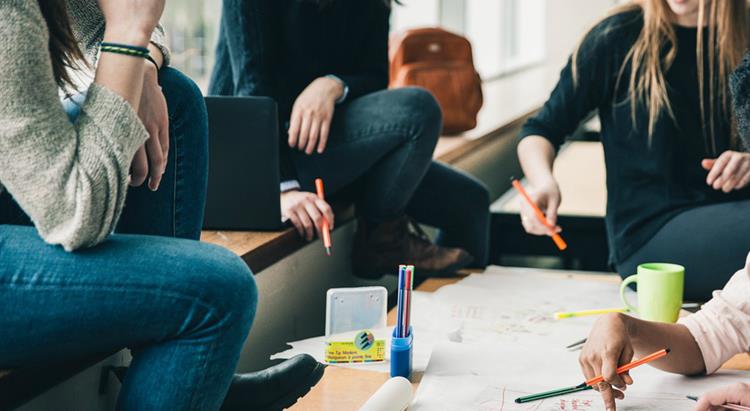04 March 2022

The Department for Children, Young People, Education and Skills has confirmed that school staff (including counsellors), online counselling, and advice services are available to support children and young people affected by the Ukrainian crisis.
CYPES Interim Director General, Rob Sainsbury said: "We're extremely grateful to our school communities, and colleagues across Government, who are among Islanders involved in the massive effort to help Ukrainian nationals who are living in the Island and assisting in the collection of overseas aid.
"It's important to remember that all children and their families from Ukraine, Russia and their neighbours will be directly affected by the conflict, both those who live abroad and those who live here but have families in these countries. We are mindful that children and families from Poland will be affected and will ensure that support is available for all children and young people affected by the crisis."
As well as school counsellors available to support students, the Youth Enquiry Service (YES) Children and Families Hub and Kooth Jersey, which provides young people in Jersey with free, safe and anonymous online mental health and wellbeing advice and support, can be contacted for support.
Education Group Director Seán O' Regan said: "Schools know their pupils best and will handle questions and worries at the level of children's understanding. We have shared useful resources with schools from sources including BBC Newsround and Save the Children.
"As hostilities in Ukraine escalate, children may see and hear things about the crisis in the news, leading to feelings of worry, anxiety and fear. Our Learning at Home website Learning At Home (gov.je) will be updated soon with guidance and is also another resource available for parents and carers who want to talk to their children about the crisis at home."
Many schools including Jersey College for Girls (JCG) and Beaulieu Convent School are acting as a collection point for donations for their school communities. JCG have produced a presentation for their tutors, which has been shared with all schools and Beaulieu has organised collections, prayers and church services through the week. Highlands College, Les Quennevais School and several primary schools are also supporting the crisis.
There is a central collection point for donations at the Old Magistrates Court at the back of the Town Hall in St Helier until Saturday 6 March between midday and 6pm daily.
The following tips shared from Save the Children, which has been operating in Ukraine since 2014, delivering essential humanitarian aid to children and their families:
MAKE TIME AND LISTEN WHEN YOUR CHILD WANTS TO TALK
Give children the space to tell you what they know, how they feel and to ask you questions. They may have formed a completely different picture of the situation than you have. Take the time to listen to what they think, and what they have seen or heard.
TAILOR THE CONVERSATION TO THE CHILD
Be mindful of the child's age as you approach the conversation with them. Young children may not understand what conflict or war means and require an age-appropriate explanation. Be careful not to over-explain the situation or go into too much detail as this can make children unnecessarily anxious.
Younger children may be satisfied just by understanding that sometimes countries fight. Older children are more likely to understand what war means but may still benefit from talking with you about the situation. In fact, older children will often be more concerned by talk of war because they tend to understand the dangers better than younger children do.
VALIDATE THEIR FEELINGS
It is important that children feel supported in the conversation. They should not feel judged or have their concerns dismissed. When children have the chance to have an open and honest conversation about things upsetting them, it can create a sense of relief and safety.
REASSURE THEM THAT ADULTS ALL OVER THE WORLD ARE WORKING HARD TO RESOLVE THIS
Remind children that this is not their problem to solve. They should not feel guilty about playing, seeing their friends, and doing the things that make them happy. Stay calm when you approach the conversation. Children often copy the sentiments of their caregivers – if you are uneasy about the situation, chances are your child will be uneasy as well.
GIVE THEM A PRACTICAL WAY TO HELP
Support children who want to help. Children who have the opportunity to help those affected by the conflict can feel like they are part of the solution. Children can create fundraisers, send letters to local decision-makers or create drawings calling for peace.